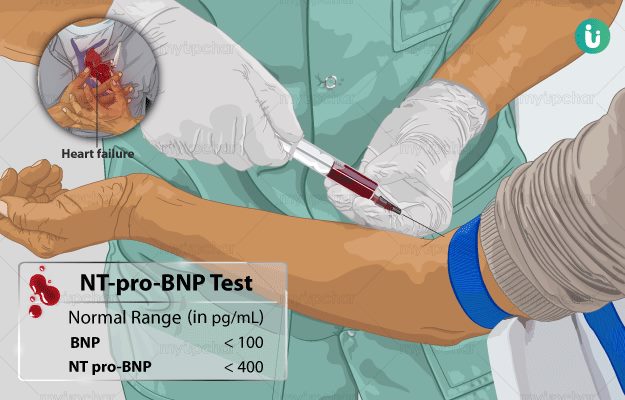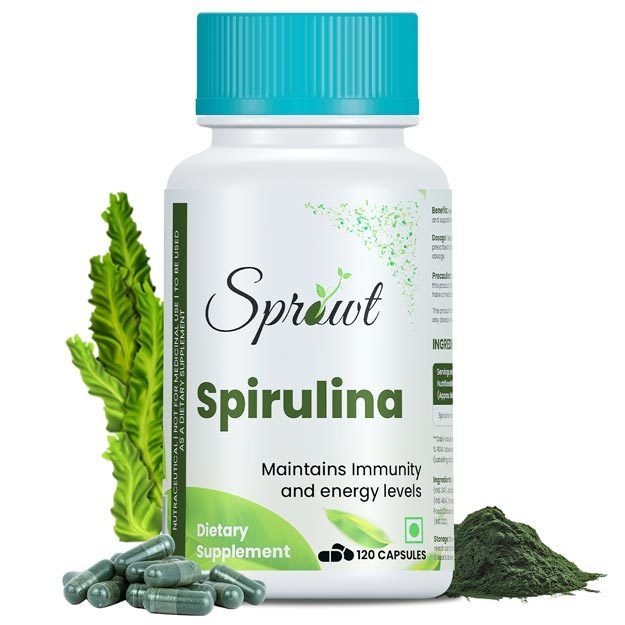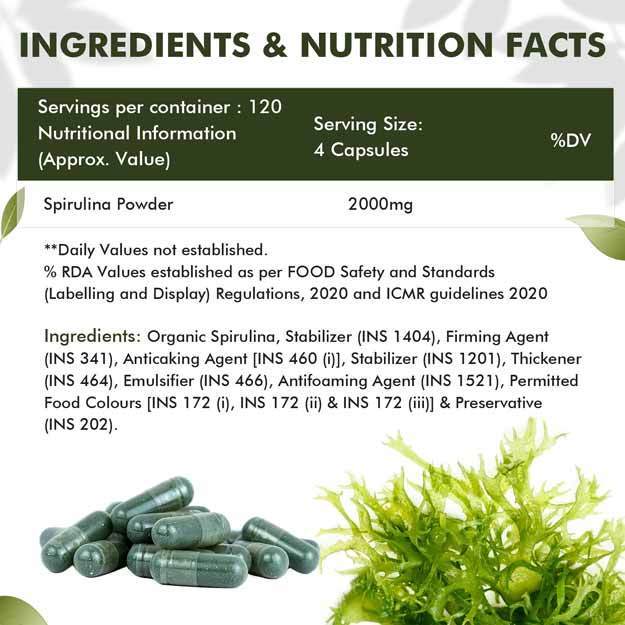What is an N-terminal Pro-Brain Natriuretic Peptide (NT Pro-BNP) test?
NT pro-BNP test is a blood test that is used to diagnose heart failure in people presenting with difficulty in breathing or acute shortness of breath during a medical emergency.
NT pro-BNP is an inactive portion of an active protein called brain natriuretic peptide (BNP) which is released from the lower chambers of the heart (ventricles) into the blood in response to stress. BNP and NT pro-BNP are important cardiac markers in the blood. They help in detecting heart failure at an early stage in those suffering from abnormal functioning of the heart, such as left ventricular dysfunction and coronary heart disease.
NT pro-BNP and BNP are also useful in assessing the severity and likely outcome of diseases such as heart failure, diseases of blood vessels (coronary artery disease), diseases related to the valves of the heart (such as aortic stenosis), pulmonary hypertension (increased blood pressure in the vessels of the lungs), cardiac hypertrophy (increased size of the heart) and arrhythmia (abnormality in the rhythm of heartbeats).
When released into the blood, NT pro-BNP and BNP result in a decrease in heart rate and blood pressure, widening of blood vessels and increased urination, which together help in decreasing the pressure on the heart. NT pro-BNP levels depend on various factors, such as the age, gender and kidney function. For example, NT pro-BNP levels tend to remain high in women, elderly individuals and in people with decreased kidney function or diseases related to kidneys.
(Read more: BNP test procedure)































